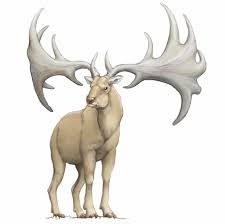Do people need mathematics?
I will express a rather paradoxical opinion that right up to the era of the couple (hi, Steam punk!)

Mathematics, although it was very desirable and helped people, was not required . That is, it is possible, theoretically, to imagine a civilization that built locomotives, but which can only divide and multiply.
No, well, really. You say, heat engines, thermodynamics, but: if you do not go into the depths (entropy), the gases expand linearly with temperature, and to understand that steam will push the piston, the theory of sets is not needed. To grind it all and collect it by trial and error is possible. Any Lefty people will do a lot of things on a whim (and many physicists worked on a whim almost without formulas - the same Faraday).
Of course, a microchip cannot be done on a whim - here it is necessary to understand quantum mechanics. But again, the knowledge of non-trivial zeros of the Zeta Riemann function has no effect on the construction of a steam locomotive! That is great that now all this is there, but how did mathematics manage to hold out until the time when it became really needed?
')
This question gave me no rest when I tried to understand Suslin's hypothesis from set theory, and drew attention to the dates of this person's life. A small village, an early death ... It looked like life in the villages like this:

But what was he thinking about?

And the contrast between the flight of thought and the situation is amazing and makes you wonder: why? why did they do it? Here you will plod over the formulas? Most likely, you will not do anything for which you are not paid. Yes, there are enthusiastic people. But then the population was much smaller, and among this population of educated people is a very thin stratum. And this layer has always been under a negative selection of evolution. Galois, Suslin, yes, even happy Erdosh , who left no offspring because he was a virgin.
Digging deeper. Cardano formula (1500 years). In school, it does not pass, because for modern students it is too complicated. How did people live then? Yes, I remember from school, slop was poured on the heads of passers-by.

However, as we continue to immerse ourselves in history, we continue to see the extreme importance of mathematics in human civilization (Maya, Ancient Greece), when there was practically no benefit from it at all.
I hear exclamations: the calendar! eclipse! crops! Say, the poor inhabitants of the south (for us that Rome, that Egypt, that Peru is a hot south) should have carefully monitored the calendar, because just a little wrong, the harvest was gone. Complete, absolute nonsense! Let's see what kind of mathematics was used by the inhabitants of the risk farming zone, where life and death really depended on the harvest, and they were swollen from hunger. Here are the rules of our ancestors with you:
On Makeya is wet - all summer is like this
Pahoma is warm - all summer is warm
Koli on St. Fedot on an oak top with edge, you will measure oats with a barrel
Here is such a higher mathematics.
Why, then, did mankind begin to develop mathematics so disproportionately quickly, despite the fact that for the time being there was little practical use of it? Partly sacred, priests, it is true. But there is a phrase that I once read in Chemistry and Life - (the magazine was wonderful). Now I can not find a quote, so I will reproduce from memory:
When evolution comes up with a new trait (for example, deer horns), then this trait is created immediately in a large number of variants in many species, and in some species this trait is so hypertrophied that it begins to harm survival. As an example, the quickly extinct giant deer was cited - poor horns interfered more than they helped:

It seems that the human mind and his penchant for mathematics turned out to be these very horns, because of which we can die out (hello, the Fermi paradox! ). Mathematics, as before, is ahead of practical needs for entire eons, and we are dealing with unattainable capacities . If someone comes up with another beautiful, complex and useless construction, another mathematician will come and generalize it to the case of arbitrary n-dimensional spaces , and then it’s a sin not to generalize to the case of non-Euclidean spaces too, right?
What is this if not a classic runaway ?

It's no good, but damn, it's so interesting.

Mathematics, although it was very desirable and helped people, was not required . That is, it is possible, theoretically, to imagine a civilization that built locomotives, but which can only divide and multiply.
No, well, really. You say, heat engines, thermodynamics, but: if you do not go into the depths (entropy), the gases expand linearly with temperature, and to understand that steam will push the piston, the theory of sets is not needed. To grind it all and collect it by trial and error is possible. Any Lefty people will do a lot of things on a whim (and many physicists worked on a whim almost without formulas - the same Faraday).
Of course, a microchip cannot be done on a whim - here it is necessary to understand quantum mechanics. But again, the knowledge of non-trivial zeros of the Zeta Riemann function has no effect on the construction of a steam locomotive! That is great that now all this is there, but how did mathematics manage to hold out until the time when it became really needed?
')
This question gave me no rest when I tried to understand Suslin's hypothesis from set theory, and drew attention to the dates of this person's life. A small village, an early death ... It looked like life in the villages like this:

But what was he thinking about?

And the contrast between the flight of thought and the situation is amazing and makes you wonder: why? why did they do it? Here you will plod over the formulas? Most likely, you will not do anything for which you are not paid. Yes, there are enthusiastic people. But then the population was much smaller, and among this population of educated people is a very thin stratum. And this layer has always been under a negative selection of evolution. Galois, Suslin, yes, even happy Erdosh , who left no offspring because he was a virgin.
Digging deeper. Cardano formula (1500 years). In school, it does not pass, because for modern students it is too complicated. How did people live then? Yes, I remember from school, slop was poured on the heads of passers-by.

However, as we continue to immerse ourselves in history, we continue to see the extreme importance of mathematics in human civilization (Maya, Ancient Greece), when there was practically no benefit from it at all.
I hear exclamations: the calendar! eclipse! crops! Say, the poor inhabitants of the south (for us that Rome, that Egypt, that Peru is a hot south) should have carefully monitored the calendar, because just a little wrong, the harvest was gone. Complete, absolute nonsense! Let's see what kind of mathematics was used by the inhabitants of the risk farming zone, where life and death really depended on the harvest, and they were swollen from hunger. Here are the rules of our ancestors with you:
On Makeya is wet - all summer is like this
Pahoma is warm - all summer is warm
Koli on St. Fedot on an oak top with edge, you will measure oats with a barrel
Here is such a higher mathematics.
Why, then, did mankind begin to develop mathematics so disproportionately quickly, despite the fact that for the time being there was little practical use of it? Partly sacred, priests, it is true. But there is a phrase that I once read in Chemistry and Life - (the magazine was wonderful). Now I can not find a quote, so I will reproduce from memory:
When evolution comes up with a new trait (for example, deer horns), then this trait is created immediately in a large number of variants in many species, and in some species this trait is so hypertrophied that it begins to harm survival. As an example, the quickly extinct giant deer was cited - poor horns interfered more than they helped:

It seems that the human mind and his penchant for mathematics turned out to be these very horns, because of which we can die out (hello, the Fermi paradox! ). Mathematics, as before, is ahead of practical needs for entire eons, and we are dealing with unattainable capacities . If someone comes up with another beautiful, complex and useless construction, another mathematician will come and generalize it to the case of arbitrary n-dimensional spaces , and then it’s a sin not to generalize to the case of non-Euclidean spaces too, right?
What is this if not a classic runaway ?

It's no good, but damn, it's so interesting.
Source: https://habr.com/ru/post/453796/
All Articles